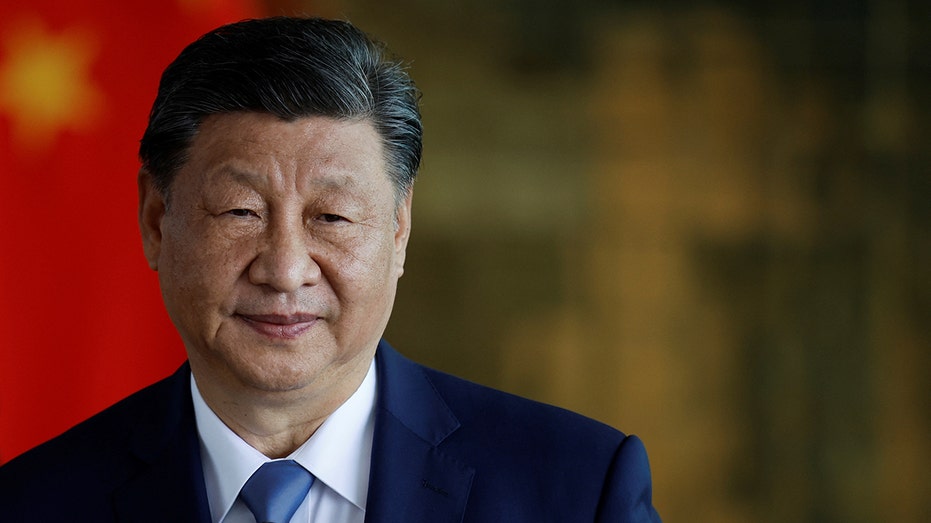US agriculture primed to be next frontier in cybersecurity in new year, experts, lawmakers say
Cybersecurity has been a major subject of discussion in recent years, with purported Chinese spy balloons floating overhead, a major Appalachian oil pipeline hacked with ransomware and questions about mysterious drones over New Jersey skies.
But one overlooked area of focus in this regard is agriculture, several prominent figures have said — especially with America’s ag states primed to lend their top political leaders to Washington in the new year.
Dakota State University President Jose-Marie Griffiths told Fox News Digital how important the heartland has become geopolitically, with several Dakotans gaining leadership or cabinet roles in the new year — including Sen. Mike Rounds, R-S.D., chairing the Senate Armed Services Subcommittee on Cybersecurity.
"I said quite a lot in the past and in [congressional] testimony about my concerns about agriculture and food production’s critical infrastructure, which came rather late to the cybersecurity critical infrastructure table," Griffiths said.
INFLATION, SUSTAINABILITY AND GLOBALISM ARE POTENTIAL DEATH SENTENCE TO US AG: FARMERS
"People [will] start to realize the agricultural vehicles they're using increasingly are autonomous and connecting to broadband [via] satellite — and other ways that these become vulnerable. And for people who wish to do us harm, they're exploiting vulnerabilities as much as they can."
Residents across the heartland pay much more attention to the threats China and other rivals pose to the U.S. agriculture sector, she said.
With advancements in technology, hackers can now find their way into harvesters, granaries and the nation’s freight-train network, Griffiths and Rounds said separately.
Whether the cash crop is Pennsylvania potatoes, Florida oranges or Dakotan wheat, all are crucial to the U.S. economy and supply chain, and all can be subject to cyberthreats, Griffiths suggested.
Rounds told Fox News Digital he has studied for some time the potential vulnerabilities of the American agriculture sector when it comes to foreign actors and cybersecurity.
"It’s more than just the vehicles and so forth," he said.
"A lot of it has to do with the infrastructure that we rely on. A good example is your water systems; your electrical systems... All of those right now are connected and they all have cyber-points-of-entry.
"And so, we have been, for an extended period of time, looking at threats that could come from overseas by adversaries that would like to infiltrate not only the water supplies, but also the electrical systems… and in some cases, sewer systems."
Rounds said he and other lawmakers have been focused on where malign actors can proverbially "shoot the arrows at us," and figure out who they are and how to stop them.
GREEN GOVERNANCE IS THE NEW GUISE FOR MERCANTILISM, WILL LEAD TO GLOBAL INSTABILITY: KEVIN ROBERTS
He said the Chinese firm Huawei had been selling cheap hardware to rural telecom entities and could be able to infiltrate communications systems.
"Once we found out that that was in there… that they could be putting in latent materials that could be activated at a later date, we've gotten most of them pulled out. But that's just one example of the ways in which rural areas can be a way into the rest of our communication systems," he said.
Rounds said drones are becoming increasingly used in agriculture, and they, too, have the danger of being hacked.
Vehicles like harvesters and tractors have also greatly advanced technologically in the near term and face similar challenges.
"A lot of that right now is done with GPS. You get into your tractor, you plug it in and basically it'll drive it for you. We leave people in those tractors, but at some stage of the game, some of those might very well become autonomous as well — and they're subject to cyber-intervention…" he said.
Grain elevators also can be interfered with, which stymies marketing and transportation, and endangers the greater supply chain and the ability for a farmer to sell on the open market, Rounds said.
Asked if he preferred today’s agriculture sector to the era before automation, Rounds said it’s not about what he thinks, but what is going to happen in the future.
"We will have more and more autonomous vehicles being used in farming. And the reason is we don't have the manpower — and we replace it with machinery. The machinery is going to get bigger. It's going to become more sophisticated, and we're going to be expected to do more things with fewer people actually operating them.," he said.
"The supply chain is so critical. We rely on autonomy in many cases for a lot of the delivery of our resources, both to the farmer, but also back out from the farmer in terms of a commodity that he wants to market."
CLICK HERE TO GET THE FOX NEWS APP
If that new technologically-advanced system malfunctions or is hacked, it will greatly disrupt the ability to provide the raw materials to the people and companies "actually making the bread" and such.
Amit Yoran, CEO of exposure management firm Tenable, recently testified before the House Homeland Security Committee and spoke at length about cyber threats to critical U.S. infrastructure.
Asked about cybersecurity in the agriculture realm, Yoran told Fox News Digital recently that there is "no singular defense paradigm that could effectively be applied across all sectors."
"Some critical infrastructure providers have a high degree of cybersecurity preparedness, strong risk understanding and risk management practices, and very strong security programs. Others are woefully ill-prepared," said Yoran, whose company is based in Howard County, Maryland.


